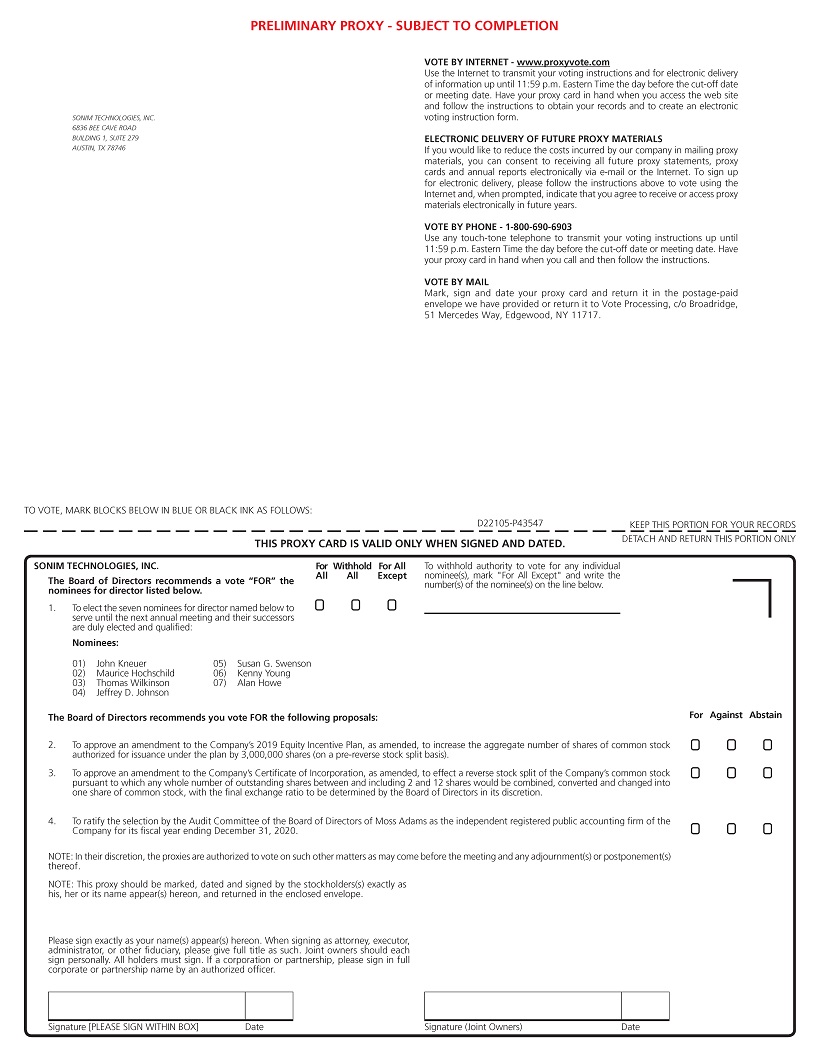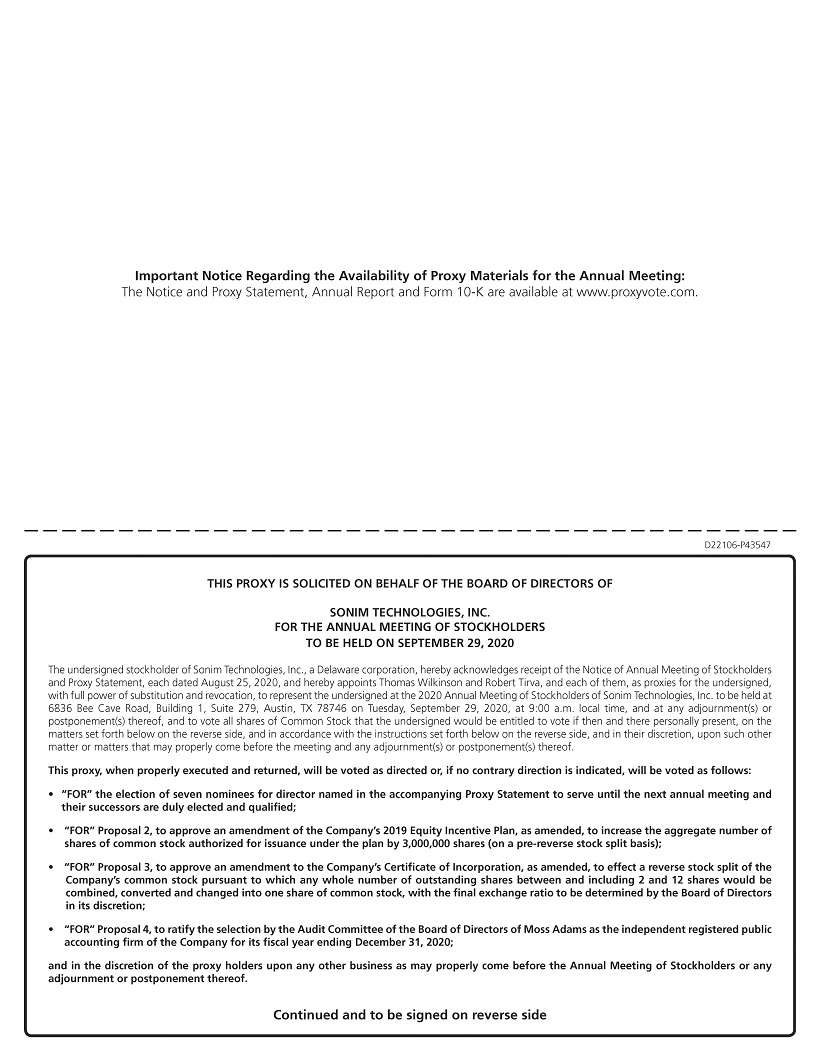
PRELIMINARY PROXY - SUBJECT TO COMPLETION VOTE BY INTERNET - www.proxyvote.com Use the Internet to transmit your voting instructions and for electronic delivery of information up until 11:59 p.m. Eastern Time the day before the cut-off date or meeting date. Have your proxy card in hand when you access the web site and follow the instructions to obtain your records and to create an electronic voting instruction form. ELECTRONIC DELIVERY OF FUTURE PROXY MATERIALS If you would like to reduce the costs incurred by our company in mailing proxy materials, you can consent to receiving all future proxy statements, proxy cards and annual reports electronically via e-mail or the Internet. To sign up for electronic delivery, please follow the instructions above to vote using the Internet and, when prompted, indicate that you agree to receive or access proxy materials electronically in future years. VOTE BY PHONE - 1-800-690-6903 Use any touch-tone telephone to transmit your voting instructions up until 11:59 p.m. Eastern Time the day before the cut-off date or meeting date. Have your proxy card in hand when you call and then follow the instructions. VOTE BY MAIL Mark, sign and date your proxy card and return it in the postage-paid envelope we have provided or return it to Vote Processing, c/o Broadridge, 51 Mercedes Way, Edgewood, NY 11717. SONIM TECHNOLOGIES, INC. 6836 BEE CAVE ROAD BUILDING 1, SUITE 279 AUSTIN, TX 78746 D22105-P43547 For All Withhold All For All Except To withhold authority to vote for any individual nominee(s), mark “For All Except” and write the number(s) of the nominee(s) on the line below. SONIM TECHNOLOGIES, INC. The Board of Directors recommends a vote “FOR” the nominees for director listed below. ! ! ! 1. To elect the seven nominees for director named below to serve until the next annual meeting and their successors are duly elected and qualified: Nominees: 01) John Kneuer 02) Maurice Hochschild 03) Thomas Wilkinson 04) Jeffrey D. Johnson 05) Susan G. Swenson 06) Kenny Young 07) Alan Howe For Against Abstain The Board of Directors recommends you vote FOR the following proposals: ! ! ! 2. To approve an amendment to the Company’s 2019 Equity Incentive Plan, as amended, to increase the aggregate number of shares of common stock authorized for issuance under the plan by 3,000,000 shares (on a pre-reverse stock split basis). ! ! ! 3. To approve an amendment to the Company’s Certificate of Incorporation, as amended, to effect a reverse stock split of the Company’s common stock pursuant to which any whole number of outstanding shares between and including 2 and 12 shares would be combined, converted and changed into one share of common stock, with the final exchange ratio to be determined by the Board of Directors in its discretion. 4. To ratify the selection by the Audit Committee of the Board of Directors of Moss Adams as the independent registered public accounting firm of the Company for its fiscal year ending December 31, 2020. ! ! ! NOTE: In their discretion, the proxies are authorized to vote on such other matters as may come before the meeting and any adjournment(s) or postponement(s) thereof. NOTE: This proxy should be marked, dated and signed by the stockholders(s) exactly as his, her or its name appear(s) hereon, and returned in the enclosed envelope. Please sign exactly as your name(s) appear(s) hereon. When signing as attorney, executor, administrator, or other fiduciary, please give full title as such. Joint owners should each sign personally. All holders must sign. If a corporation or partnership, please sign in full corporate or partnership name by an authorized officer.
